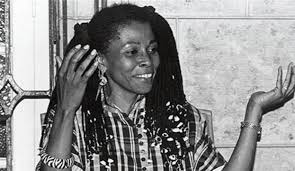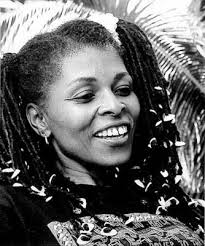Written By: Melissa M.
Assata Shakur was never just a name in a history book. She was fire. She was courage. She was soul. Born in 1947 as JoAnne Deborah Byron, she lived a life rooted in resistance, love for her people, and an unbreakable spirit. She was Tupac Shakur’s godmother and step aunt, a connection that tied two revolutionaries across generations.

Raised between Queens and the South, Assata was always observant, soaking in the struggle around her. But she didn’t just watch: she moved with it, fought against it, and made sure the world heard her name, not as a victim, but as a voice.
Assata began her political journey in college, where she joined the Black Panther Party. She worked to feed children, educate neighborhoods, and protect Black communities from police violence. But Assata was never one to stay silent when something did not sit right. She criticized the sexism within the Panthers and eventually aligned herself with the Black Liberation Army, a more militant group that believed in defending Black lives by any means necessary.
She was not here for surface level changes. She wanted real justice. Real liberation. Real healing for Black folks.
– ADVERTISEMENT –

On a spring night in 1973, Assata’s life shifted forever. A shootout on the New Jersey Turnpike left a state trooper and one of her comrades dead. Assata was wounded, captured, and charged with murder. Her trial, surrounded by heavy media attention and public division, ended in a conviction and life sentence. But questions always lingered: was she really the shooter? Or just another Black revolutionary caught in the crosshairs of a system scared of her power?
Assata was not just family to Tupac; she was a light. In his song Words of Wisdom, he honored her as both a fugitive and a symbol of hope for oppressed people everywhere. Their relationship was rooted in the same fire: truth telling, challenging injustice, and loving Black people unapologetically.
Through her guidance, Tupac learned to never let the world define him. Assata showed him that history remembers the fearless.

Assata passed away peacefully in Havana, Cuba, on September 25, 2025. She was 77 years old. Her death was confirmed by Cuban officials and quickly sent waves through the global community. People cried, celebrated, and remembered. Not just who she was, but what she represented: strength in the face of state violence, truth in a world of silence.
Before her death, Assata once said,
“It is our duty to fight for our freedom. It is our duty to win. We must love each other and support each other. We have nothing to lose but our chains.”
These words live on. In classrooms. In prisons. In neighborhoods. In movements. In music.
She may be gone from this earth, but she will never be erased. She belongs to the people now, and the people do not forget.
– ADVERTISEMENT –